Fruits, which should make up 10 to 30% of your bird’s diet, are good for their nutrition and growth. But, can chickens eat plums? Should we feed them juicy fruits?
Chickens could have plums as their healthy snack. Plums are nutritious and juicy, and your chickens will love them.
Chickens eat both plants and insects. But if you’re thinking about feeding them plums or leftovers, there are some important things to consider which I’ll discuss further in detail below. So stay tuned!
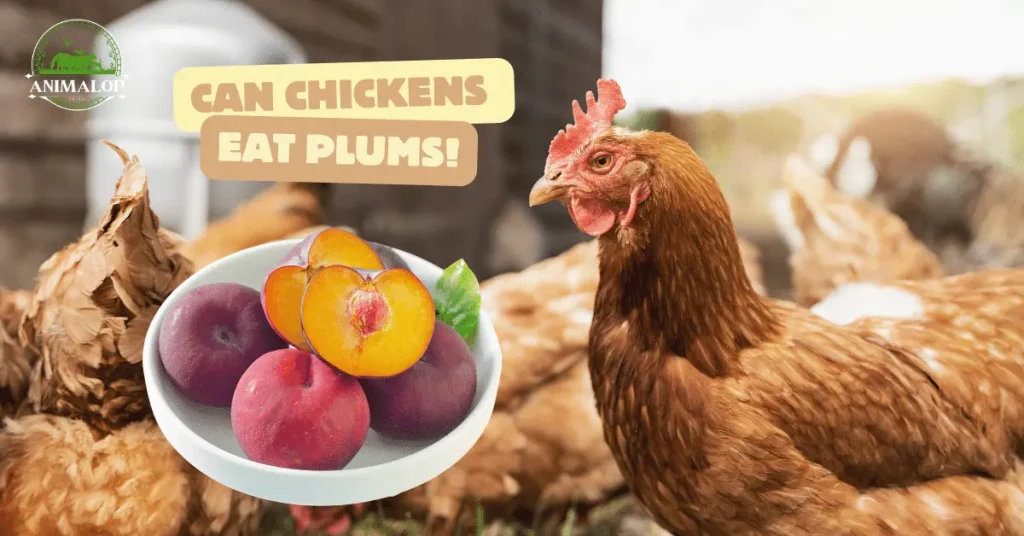
Can Chickens Eat Plums?
So, the answer is absolutely yes. Chickens can eat the soft part of a plum. They really like how juicy and soft plums are, making them a favorite treat. Also, plums have lots of vitamins and nutrients that are good for chickens. Can Chickens Eat Mushrooms
Should We Feed Chickens Pitted Plums?
Yes, they can. You shouldn’t give chickens seeds or pits from fruits like apples, cherries, pears, peaches, and plums because they have a little bit of cyanide in them. The fruit itself is okay for chickens as long as you take out the pits or cores.
Plums are good for chickens, but their pits are not because they can be dangerous. Plum pits have something called amygdalin that turns into cyanide when eaten. Cyanide is poisonous to both people and animals, and even a little bit can make chickens sick. If they eat in high quantities, it may get fatal to your chicken.
So, you ought to take out the pit before you give plums to your chickens. Since chickens like to peck around, they might try to eat the plum pits if they find them. To keep them safe, make sure to throw away the pits where chickens can’t get to them.
Can Chickens Eat Dried Plum?
Dried plums, also known as prunes, are okay for chickens to have them in small portions. They come with sufficient nutrients but must be fed only a little at a time because they have more sugar than fresh plums.
If the dried plums still have pits, it’s important to take them out before giving them to chickens because the pits can be toxic.
You can also mix dried plums into their regular feed. This way, the chickens get extra nutrients from the prunes along with their usual food.
Are Plums Healthy For Chickens?
Plums are good because they give chickens important nutrients that help their digestion, bones, and organs work well. But, even though plums are really healthy, chickens should only have them sometimes.
Chickens could have plums as a tasty healthy treat. Plums are full of nutrients and have juicy flesh that chickens usually love.
Giving your chickens plums can offer them some health benefits like:
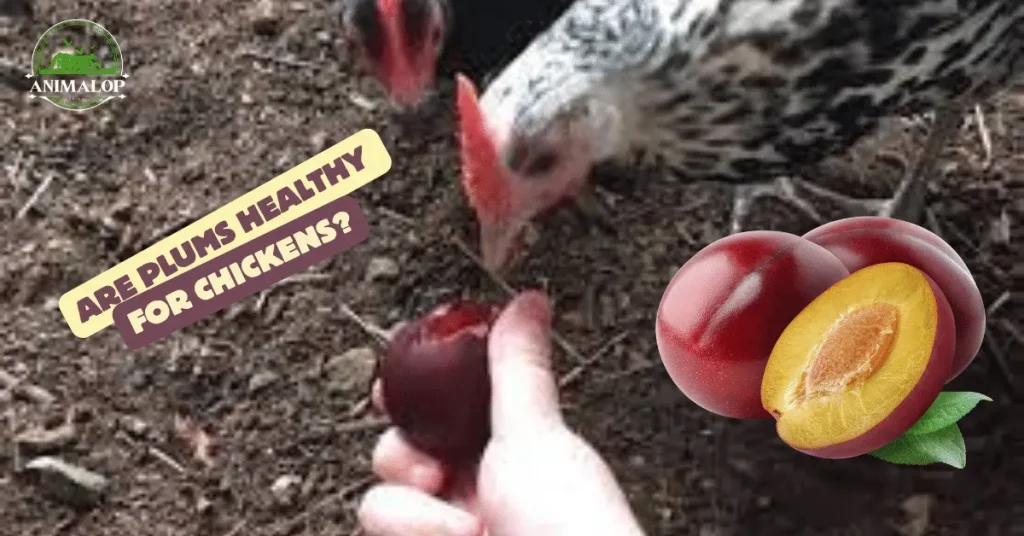
Plums Are Full Of Antioxidants
Antioxidants are important for keeping your chickens healthy. They fight off harmful things in the body that can damage cells and protect them from many diseases.
Plums Strengthens The Immune System
They have a lot of vitamin C, which strengthens your chickens’ immune system, keeps their heart healthy, and makes them less likely to get sick. If they do get sick, vitamin C can help reduce swelling and help them get better quicker.
A study showed that plums could improve the immune system. Adding plums to a chicken’s diet can help prevent coccidiosis, a disease that affects the intestines of chickens caused by parasites.
Plums Are Good For Digestion
They have a lot of fiber, which helps chickens have regular bowel movements and stops them from getting constipated.
Plums Are Great For Your Chicken’s Health
Here are some vitamins and minerals in plums that help keep your chickens healthy and active:
- Vitamin A helps the glands that produce mucus in chickens, like in the nose and throat, work properly.
- Vitamin K is important because if a chicken doesn’t have enough, it can have trouble stopping bleeding if it gets hurt.
- Chickens can benefit from sorbitol because it lowers cholesterol levels and helps them gain weight.
- Potassium is good for egg laying and helps chickens deal with hot weather better.
- Calcium is crucial for laying hens to make eggs. Without sufficient calcium, they may stop laying eggs.
- Folate is needed for healthy feathers and bones and to prevent anemia in chickens.
Guide To Feeding Plums to Chickens
Feeding plums to the chickens is easy and they love them. You can find plums in stores or markets any time of the year. Pick the ripe ones because they taste the best for your chickens.
Here’s what to do before giving them to your chickens:
- Wash the plums well to get rid of any dirt or chemicals.
- Slice the plum in half and take out the pit. You can throw the pit in the compost bin so the chickens don’t eat it.
- Then, chop the plum into tiny pieces. This makes it easier for the chickens to eat and helps prevent choking.
- You can toss the plum pieces to the chickens or give them the whole plum, but they might not be as keen on the harder texture.
- You can also mix plums with other fruits like strawberries, blueberries, and apples for a special treat. All the fruits need to be cut up into pieces and mix them well in a plate or bowl, for feeding to your chickens.
On some days, you can mix plums with their regular feed. This way, they enjoy a variety of tastes while getting all the required nutrients.
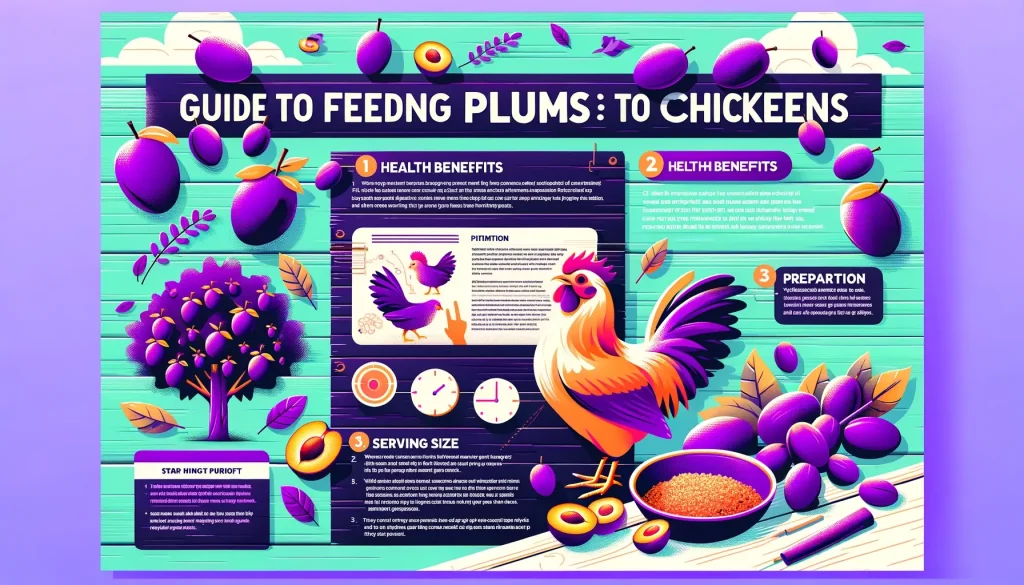
How Much and How Often Can Chickens Eat Plums?
Chickens should mostly eat (90%) special chicken feed (commercial feed) because it has all the nutrients they need. This is really important to keep them healthy, especially when they’re laying eggs or losing old feathers.
Usually, chickens can finish their treats in about five minutes. Little chicks can have a tiny piece of plum, but make sure it’s cut really small so they don’t choke. Grown-up chickens may have around half a plum each.
Plums and other fruit treats shouldn’t be given to your chickens in excess. Giving them too much can cause problems like stopping egg laying, losing feathers, starting to peck at each other, or getting sick.
FAQs
Final Thoughts
To sum it up, can chickens eat plums? The answer is most certainly yes but with a few considerations. Plums are full of good stuff like nutrients and antioxidants, making them a great snack for your chickens.
They help improve the immune system and enhance a healthy digestive system. But, always take out the pit before giving plums to your chickens, and don’t give them too many. This way, you make sure they’re getting a well-rounded diet.

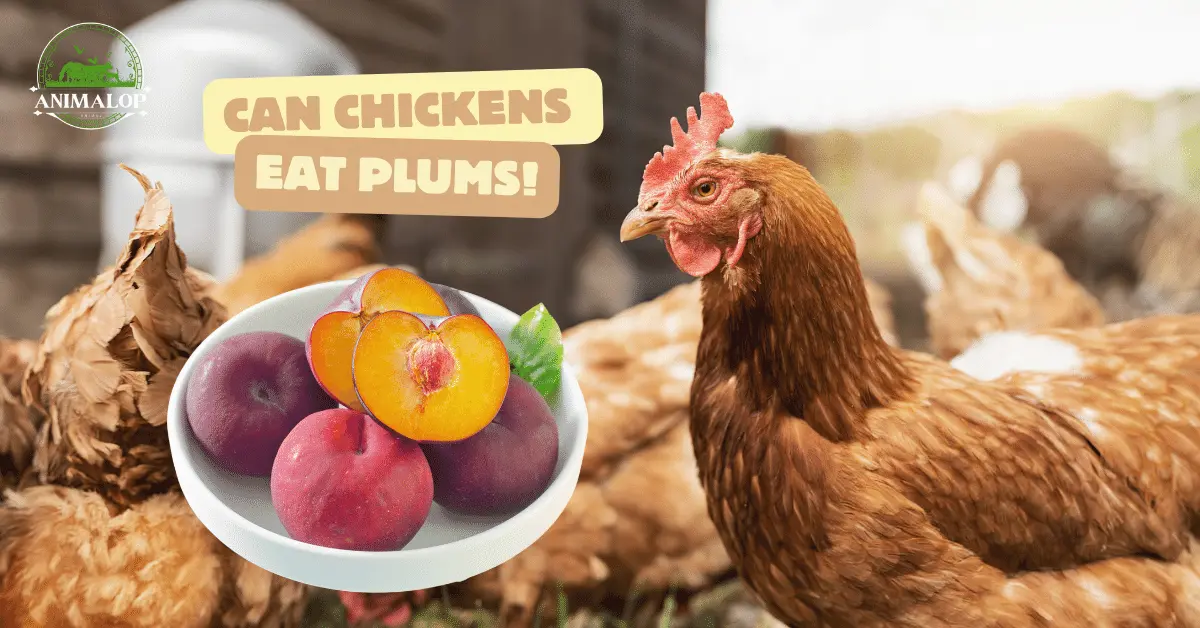
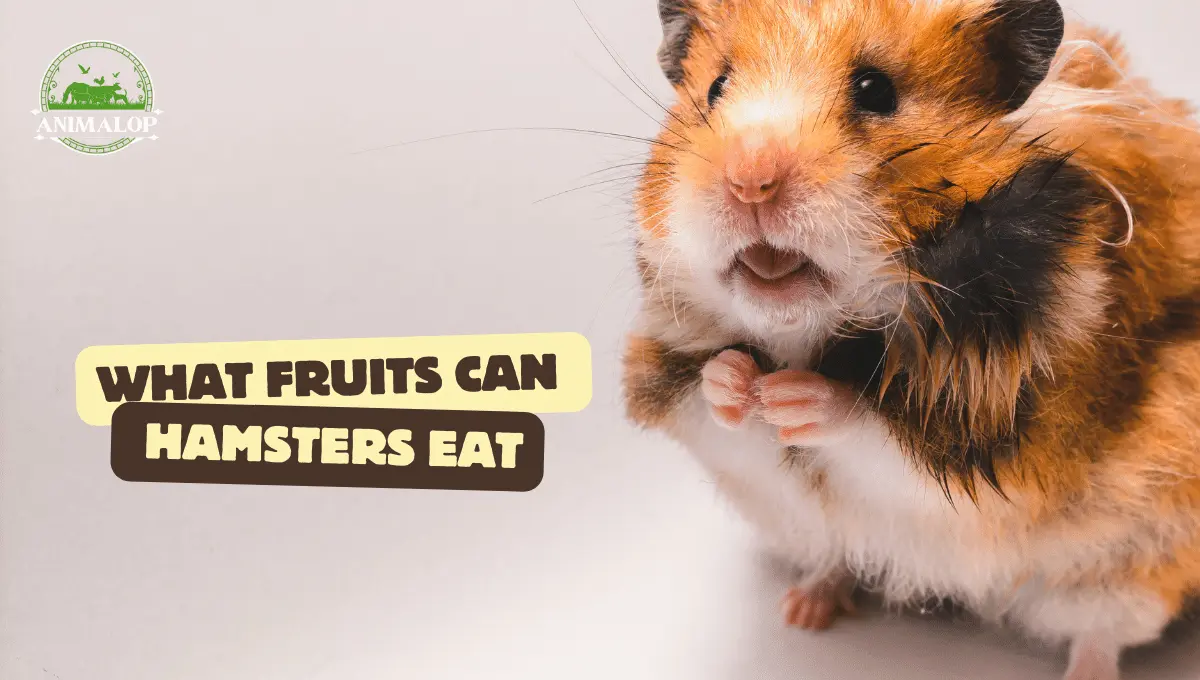
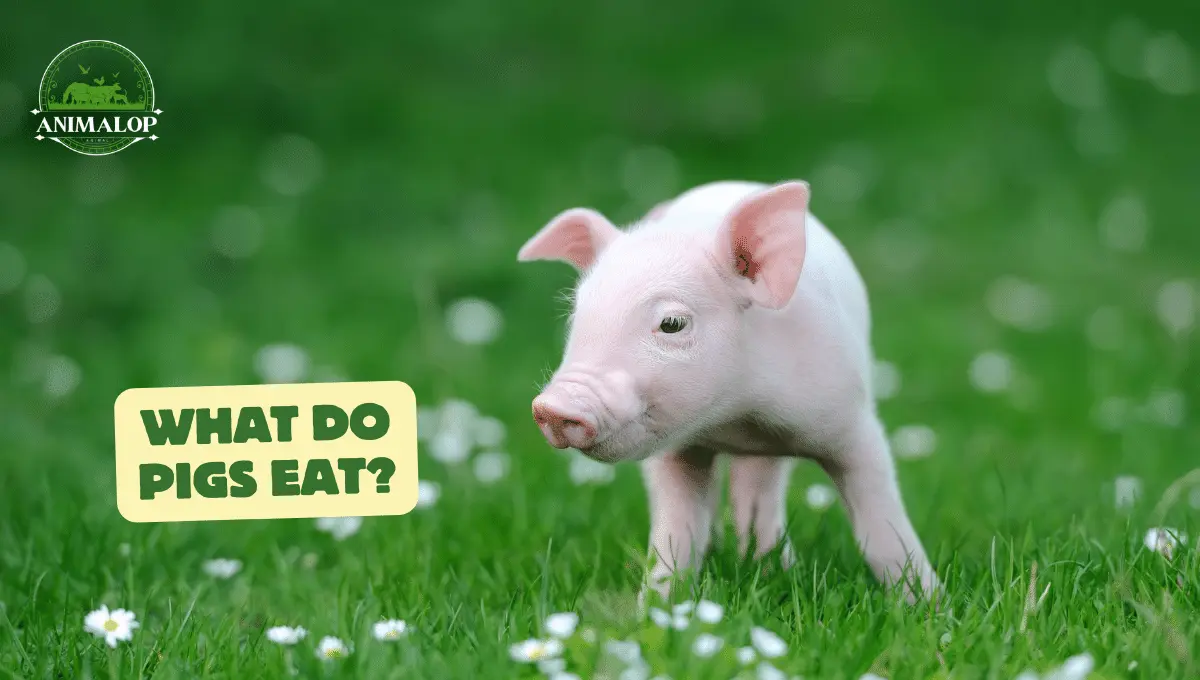
2 Comments on “Can Chickens Eat Plums? Essential Facts and Feeding Tips & More!”